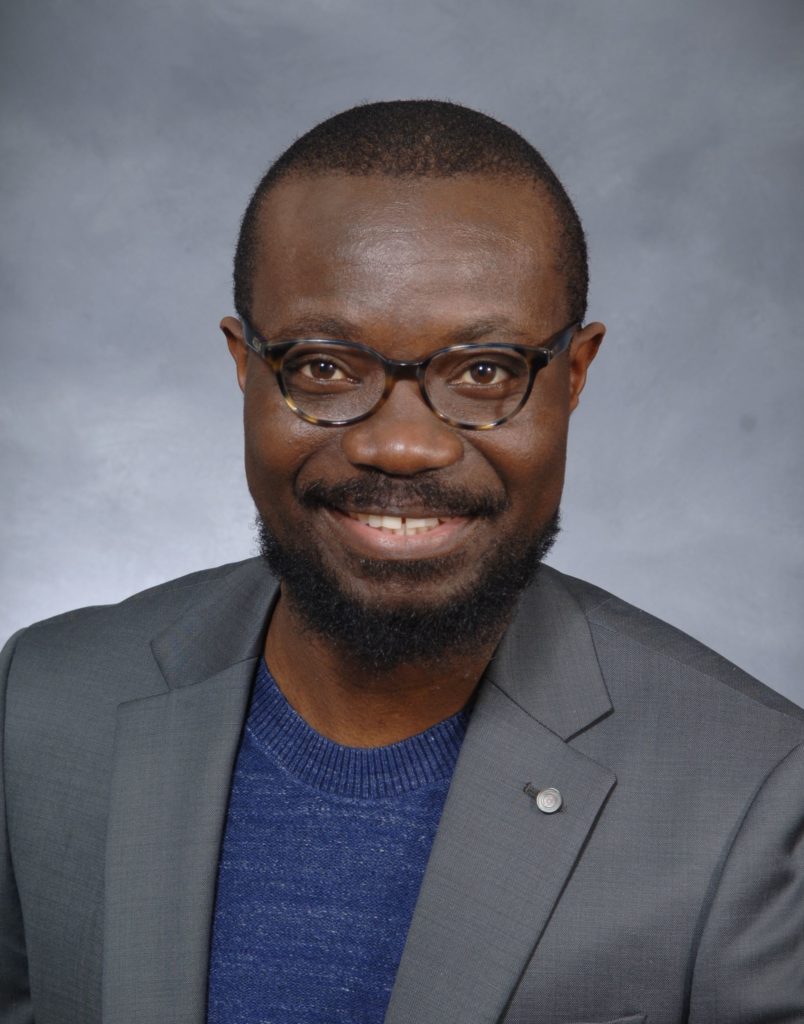
Not many people lead lives that could one day form the basis of films. But I could easily see the life story of Dr. Masachs Boungou turned into a biopic or documentary.
Dr. Boungou was born and raised in Africa, in the Republic of Congo, where he survived a civil war. This involved many harrowing and death-defying twists along the way. He finished high school and college, and then came to the United States as a Fulbright Scholar, where he received a Master’s Degree in Sustainable International Development and Coexistence and Conflict Studies, at The Heller School for Social Policy and Management at Brandeis University. That was followed by becoming a Doctor of Philosophy, Ph.D., in International/Global Studies at University of Massachusetts Lowell.
Be sure to watch the video of his commencement address at UMass Lowell, in 2022, as he briefly relates his inspirational life story. He was also thrilled to be interviewed by the Voice of America, because he said that he learned English by listening to the VOA when he lived in Africa. He was also interviewed by the influential Srinivas Rao for The Unmistakable Creative Podcast “Turning the Pain and Personal History into Meaning and Purpose.”
Dr. Boungou has two books planned for release, adding to his two current books, The Struggle We Carry: Defining our Existence as a Success or Failure and The Power of Personal History: Turning one’s life tragedies into triumph (A Memoir). His scholarly article “How Life-Shock Experiences Drive Immigrant Entrepreneurs” was recently published by Springer in Journal of Global Entrepreneurship Research.
I was privileged to have met Masachs when we both participated (via video) in April’s Berrett-Koehler Bookplan Nonfiction Book Marketing Workshop, and have gotten to know him better in video calls since then. I’m grateful to him for answering my questions about his life story, including his work, research, writing, and teaching.
How would you characterize the nature of your day-to-day work, research, and your foundational concepts revolving around personal history?
I would characterize it as purposeful and driven. I didn’t choose what I do but was pushed to do it. Personal history around personal crises makes us or freezes us to seek a door of innovation.
For the non-specialist reader, how would you characterize the research and findings for your article “How Life-Shock Experiences Drive Immigrant Entrepreneurs,” in Journal of Global Entrepreneurship Research (2024)?
I would characterize it around the value of personal crises in shaping successful business leaders.
First, past personal crises, such as civil wars, genocide, or both, help business leaders capitalize on them to build personality traits. For example, my interviewees used the words resilience, hope, new perspective, perseverance, and gratitude to indicate how these personal crises have shaped their behaviors and attitudes. In doing so, these successful business leaders create shared meanings to develop skills that sustain their business survival and success even during or after times of change or disruption.
Second, past personal crises help successful business leaders be ready-made for future business challenges. The value of these personal crises, embedded in their personality traits, has enabled these leaders to build on their strengths, fostering the drive and resilience to be proactive and adapt. As one of my interviewees shared, ‘‘If you have experienced a situation as we have experienced, you are not afraid of things that can happen.’’
You have a powerful personal background and origin story. How has this origin story driven you and influenced your work as a social entrepreneur, writer, workshop leader, and teacher?
Though my personal background is not limited to my experience surviving civil war in the Republic of the Congo, it has played, and still does, a powerful role in developing the person I have become and am still becoming and what I usually describe as a ‘‘strong leadership story,’’ meaning the ability or approach to capturing a story and communicating its meaning to create inspirational change.
So, my story has influenced me and still does a lot in the way I find my value or service in what I do. Our personal crises give us, for some of us who want to make things happen, a sense of history, which is our center of gravity. I always say that history is not the past. It is who we are. It invokes inspirations that shape our present and future conditions. I recently watched Jensen Huang, Nvidia CEO and Founder, addressing the students at the 2024 Stanford Institute for Economic Policy Research (SIEPR) Summit in these terms: ‘‘…I hope suffering happens to you… I wish upon you ample doses of pain and suffering.’’
The value of personal crises is not to depress us but rather to reinvigorate us in the pursuit of our noble service in this world.
